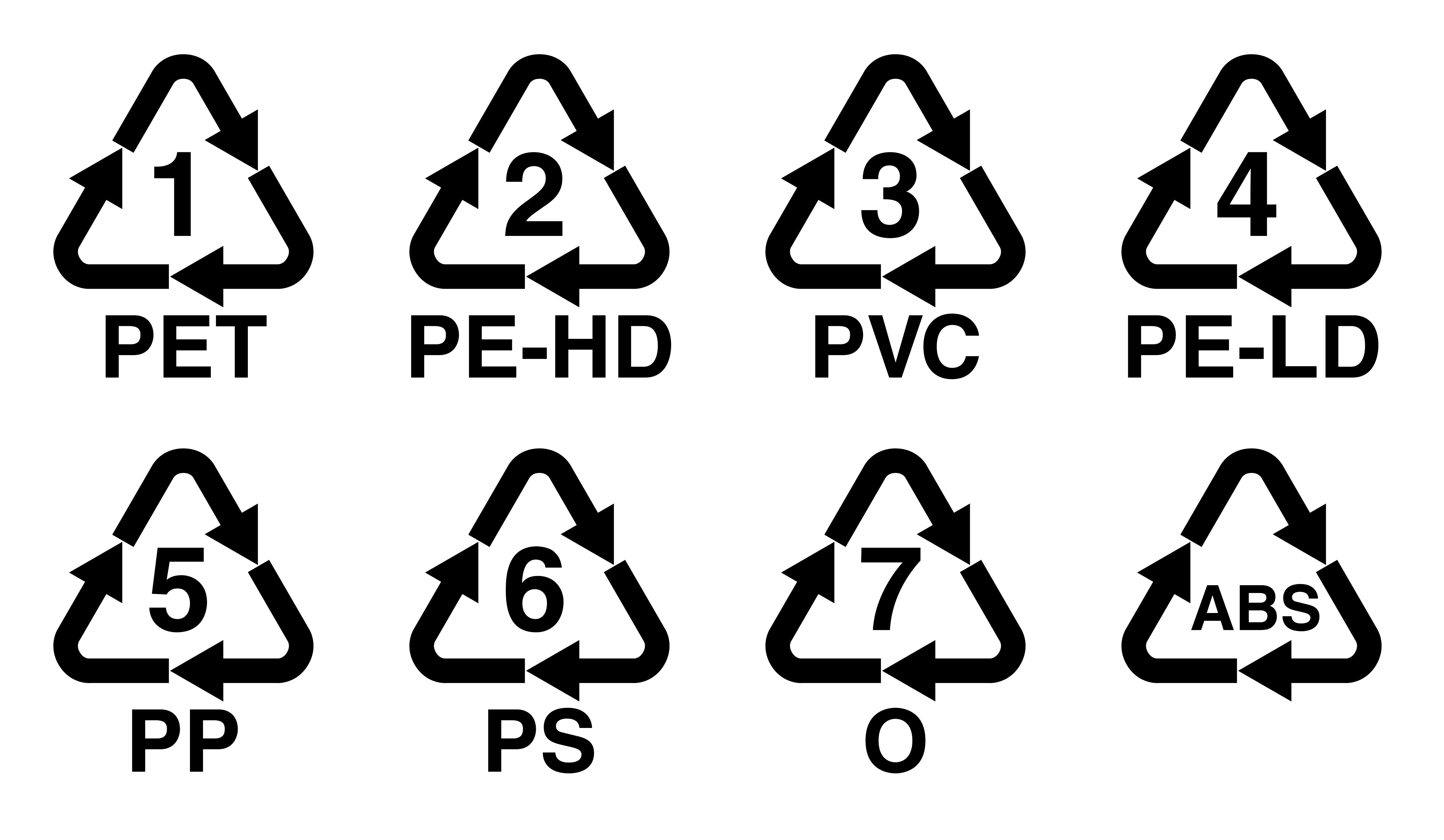Recycling is not only good for the planet, but it's also good for humanity as a whole. However, the process of recycling can be somewhat confusing, especially when it comes to plastics. With so many different types of plastics in use today, it's important to know which ones can be recycled and how they should be handled. That's where Resin Identification Codes (RIC) come into play.
What Are Resin Identification Codes?
The Resin Identification Code (RIC) system was introduced by the Society of the Plastics Industry (now the Plastics Industry Association) in 1988 to assist recyclers in identifying and separating different types of plastic. These codes are numerical and typically range from 1 to 7. You've likely seen these codes printed inside a small triangle on plastic items, whether it be a plastic bottle, a food container, or packaging material.
The seven RIC codes:
- PET (Polyethylene Terephthalate): Commonly used for soda bottles and other food packaging.
- HDPE (High-Density Polyethylene): Found in milk jugs, laundry detergent containers, etc.
- PVC (Polyvinyl Chloride): Used in piping, vinyl siding, and some types of food packaging.
- LDPE (Low-Density Polyethylene): Present in plastic wrap, grocery bags, and squeezable bottles.
- PP (Polypropylene): Often used in straws, yogurt containers, and bottle caps.
- PS (Polystyrene): Commonly known as Styrofoam, used in coffee cups, food trays, etc.
- Other: A catch-all category for plastics that don't fit into the above categories, or for those made from more than one type of resin.
How Can Resin Identification Codes help?
- Sorting and Separating: Knowing the type of plastic you are dealing with helps in sorting plastics into appropriate recycling streams.
- Identifying Recyclability: Not all plastics are created equal in terms of their ability to be recycled. RICs help consumers and recyclers understand which plastics are more likely to be accepted in local recycling programs.
- Eco-Friendly Choices: Consumers can use these codes to choose products made from more easily recyclable materials.
- Safety: Some plastics are safer than others when it comes to food and beverage storage. For example, plastics labeled with codes 1, 2, 4, and 5 are generally considered safe for food and drink.
Are all plastics good and easy to recycle?
The short answer is no. While plastics like PET and HDPE (codes 1 and 2) are widely accepted in recycling programs and are relatively easy to recycle, others like PVC (code 3) and PS (code 6) are less frequently recycled due to their potential for releasing harmful chemicals. Moreover, the "Other" category (code 7) often includes plastics that are difficult or costly to recycle.
Factors affecting recyclability:
- Material Composition: Multi-layer or multi-material plastics are harder to recycle.
- Market Demand: Even if a plastic is technically recyclable, low demand for the recycled material makes it less likely to be recycled.
- Local Programs: Your local recycling program may not accept all types of plastic, even if they are technically recyclable.
Conclusion
Resin Identification Codes serve as a helpful guide for both consumers and recyclers to make better decisions around the use and recycling of plastics. However, the existence of these codes does not guarantee that a plastic item is recyclable or has been recycled. The complexity and economics of plastic recycling are influenced by various factors including material composition, market demand, and local recycling capabilities.
To truly make an impact, it's essential for consumers to go beyond just checking RICs. Adopt a more mindful approach towards plastic usage, opt for reusable items, and participate actively in local recycling programs. Let the Resin Identification Codes be your starting point in making more informed and responsible choices.
When it comes to making an environmentally responsible choice for your material handling needs, Q-Pall offers a reassuring solution. All Q-Pall plastic pallets are exclusively made from plastics bearing the Resin Identification Code (RIC) of 2, also known as High-Density Polyethylene (HDPE). This material is widely recognized for its high recyclability, ensuring that these pallets can be easily collected, processed, and transformed into new products at the end of their lifecycle. By using RIC code 2 plastics, Q-Pall not only provides durable and reliable pallets but also guarantees the circularity of their products. Choosing Q-Pall means you are opting for a sustainable, long-term solution that minimizes waste and maximizes resource efficiency, aligning your business practices with the principles of the circular economy.
